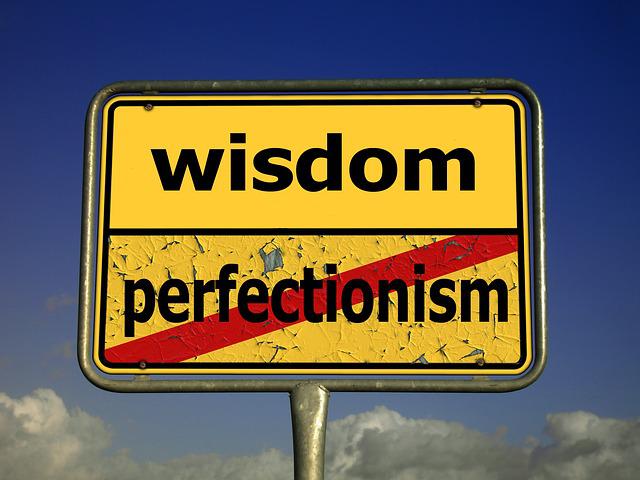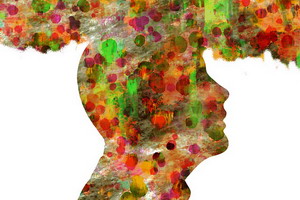 Today’s article is a philosophical piece, so it will contain a lot of individual perspectives based on personal experience and conjecture. My life is dominantly that of a philosopher, always curious and always contemplating what if. Why am I that way? It is because I love wisdom. Philo means loving and sophia means wisdom. I love seeing the big picture in life, and how everything fits together and works together. Our human bodies are amazing examples of this in action every moment we are alive. That is why I found being a doctor a natural outflow for my philosopher mind and heart.
Today’s article is a philosophical piece, so it will contain a lot of individual perspectives based on personal experience and conjecture. My life is dominantly that of a philosopher, always curious and always contemplating what if. Why am I that way? It is because I love wisdom. Philo means loving and sophia means wisdom. I love seeing the big picture in life, and how everything fits together and works together. Our human bodies are amazing examples of this in action every moment we are alive. That is why I found being a doctor a natural outflow for my philosopher mind and heart.
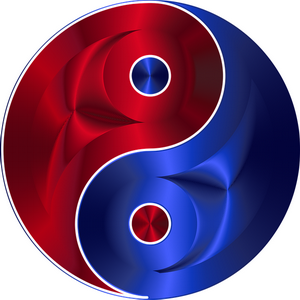 Life is duality. Light and dark are just different ends of a photonic intensity spectrum. Hot and cold are similarly different ends of a thermal vibration spectrum. Good and bad or right and wrong could be thought of as opposite ends of a moral spectrum. In the medical world, health and disease are seen as opposite ends of a health spectrum. Inhalation and exhalation are opposite ends of a breathing cycle. The list is endless. It is the yin and yang of life. I like the yin/yang perspective because the central point of the understanding of yin and yang is that they are not truly opposites as each moves into and becomes the other. Like waves on the beach, each wave is followed by a trough which defines both the wave preceding it and the wave following it. In the natural world, everything is interconnected, interdependent, and complementary.
Life is duality. Light and dark are just different ends of a photonic intensity spectrum. Hot and cold are similarly different ends of a thermal vibration spectrum. Good and bad or right and wrong could be thought of as opposite ends of a moral spectrum. In the medical world, health and disease are seen as opposite ends of a health spectrum. Inhalation and exhalation are opposite ends of a breathing cycle. The list is endless. It is the yin and yang of life. I like the yin/yang perspective because the central point of the understanding of yin and yang is that they are not truly opposites as each moves into and becomes the other. Like waves on the beach, each wave is followed by a trough which defines both the wave preceding it and the wave following it. In the natural world, everything is interconnected, interdependent, and complementary.
 Life is cyclical in nature, like the swinging back and forth of a pendulum. As soon as any cyclic action reaches its maximum, it begins to swing back in the opposite direction towards its minimum. In mathematics, this is called mean reversion, which says that everything tends back towards some middle in-between state. Nothing stays at one extreme or the other for more than a moment. For me, this profound truth about life and reality puts our tendency towards moral idealism into the realm of fantasy – not applicable to the real world and therefore not very useful. We all love our particular fantasy of ideally how things “should work,” but that is not how things actually do work.
Life is cyclical in nature, like the swinging back and forth of a pendulum. As soon as any cyclic action reaches its maximum, it begins to swing back in the opposite direction towards its minimum. In mathematics, this is called mean reversion, which says that everything tends back towards some middle in-between state. Nothing stays at one extreme or the other for more than a moment. For me, this profound truth about life and reality puts our tendency towards moral idealism into the realm of fantasy – not applicable to the real world and therefore not very useful. We all love our particular fantasy of ideally how things “should work,” but that is not how things actually do work.
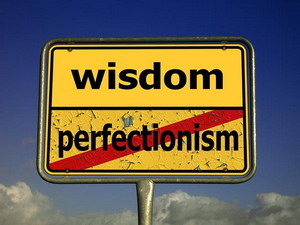 Medicine falls into this idealism trap a lot with how it wants to believe the body “should work.” The problem is nobody’s body actually works that way. Life is about adaptation to what is, not living in an isolated ideal reality. Our bodies are a reflection of thousands of adaptations to our ever-changing environment. The ideal is not an option, because to have an ideal manifest, there must be complete supportive alignment from our environment with only our ideal needs and wants considered. Conflicts or oppositions sidetrack us from our ideal outcome. Idealism fails in the body, in relationships, in business, in politics, and in international affairs. Survival does not go to the fittest, or smartest, or most beautiful, but to the most adaptable.
Medicine falls into this idealism trap a lot with how it wants to believe the body “should work.” The problem is nobody’s body actually works that way. Life is about adaptation to what is, not living in an isolated ideal reality. Our bodies are a reflection of thousands of adaptations to our ever-changing environment. The ideal is not an option, because to have an ideal manifest, there must be complete supportive alignment from our environment with only our ideal needs and wants considered. Conflicts or oppositions sidetrack us from our ideal outcome. Idealism fails in the body, in relationships, in business, in politics, and in international affairs. Survival does not go to the fittest, or smartest, or most beautiful, but to the most adaptable.
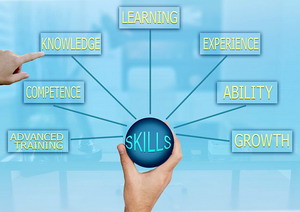 The ancient Greeks appear to have understood this as the word sophia, which means wisdom. It also means skill. When you acquire information, you have knowledge. But you do not have skill until you apply that knowledge to the real world hundreds of times. Each time you apply that knowledge you will have to adapt to variations in what the world presents to you. It is that constant adaptation that turns knowledge into skill. Another definition for wisdom is successful adaptation to what is. So wisdom and skill are truly the same things. I have always said that spiritual growth is really just building the skills for successfully living life. The goal is not to win, but to connect and create. Winning is trying to be the smartest or fittest or most beautiful through competing with others. Wisdom says winning is ultimately a losing proposition. The skill of life is to create from who you are and then adapt that to support connection with the rest of life. Adaptation is the real win.
The ancient Greeks appear to have understood this as the word sophia, which means wisdom. It also means skill. When you acquire information, you have knowledge. But you do not have skill until you apply that knowledge to the real world hundreds of times. Each time you apply that knowledge you will have to adapt to variations in what the world presents to you. It is that constant adaptation that turns knowledge into skill. Another definition for wisdom is successful adaptation to what is. So wisdom and skill are truly the same things. I have always said that spiritual growth is really just building the skills for successfully living life. The goal is not to win, but to connect and create. Winning is trying to be the smartest or fittest or most beautiful through competing with others. Wisdom says winning is ultimately a losing proposition. The skill of life is to create from who you are and then adapt that to support connection with the rest of life. Adaptation is the real win.
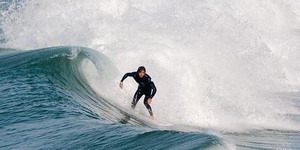 The natural duality of life underlies successful adaptation. Like a surfer riding the waves, a highly skilled participant in life learns how to flow with the movement of the natural cycles of life. Idealism is that fixed rock on the shore fighting the waves. It feels very noble about itself, but it never adapts or goes anywhere. It just sits there being a rock – separate and alone. I used to be that rock until I started to grow up about 30 years ago. I had a boatload of knowledge and not much practical skill. Life decided to kick my feet out from under me and pull my heart sideways in order to break my ego’s grasp on my life. I find that ego is a tough opponent and pain its greatest teacher.
The natural duality of life underlies successful adaptation. Like a surfer riding the waves, a highly skilled participant in life learns how to flow with the movement of the natural cycles of life. Idealism is that fixed rock on the shore fighting the waves. It feels very noble about itself, but it never adapts or goes anywhere. It just sits there being a rock – separate and alone. I used to be that rock until I started to grow up about 30 years ago. I had a boatload of knowledge and not much practical skill. Life decided to kick my feet out from under me and pull my heart sideways in order to break my ego’s grasp on my life. I find that ego is a tough opponent and pain its greatest teacher.
 How does this philosophy apply to today’s real-world issues? Certainly, we see an overgrowth of new idealism appearing in modern politics. In my youth. such intense levels of idealism were reserved for the youth without family obligations and real-world survival needs weighing them down. As college students, we could go out protesting and marching for whatever idealist perspective was- in vogue that semester. We weren’t concerned about where the money was coming from to pay the rent and feed our kids. I remember I could survive on $75 a month as a student at UC Davis. Tuition was only $150/year and my parents were chipping in to cover that.
How does this philosophy apply to today’s real-world issues? Certainly, we see an overgrowth of new idealism appearing in modern politics. In my youth. such intense levels of idealism were reserved for the youth without family obligations and real-world survival needs weighing them down. As college students, we could go out protesting and marching for whatever idealist perspective was- in vogue that semester. We weren’t concerned about where the money was coming from to pay the rent and feed our kids. I remember I could survive on $75 a month as a student at UC Davis. Tuition was only $150/year and my parents were chipping in to cover that.
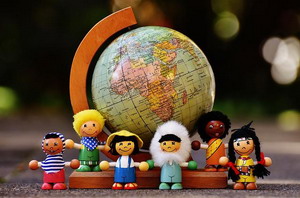 Unfortunately, idealism requires everyone to be on the same page to work. Well, everyone is not on the same page. We are all different. When life points that out to the idealist, they get violently angry and self-righteous because after all, they are right and if everyone saw things their way all would be well with the world. It reminds me of an old song by Tom Lehrer called National Brotherhood Week. Video In the album format he talks about how much he hates anybody who is a bigot (tongue in cheek since hating any group of people makes you the bigot.) Album
Unfortunately, idealism requires everyone to be on the same page to work. Well, everyone is not on the same page. We are all different. When life points that out to the idealist, they get violently angry and self-righteous because after all, they are right and if everyone saw things their way all would be well with the world. It reminds me of an old song by Tom Lehrer called National Brotherhood Week. Video In the album format he talks about how much he hates anybody who is a bigot (tongue in cheek since hating any group of people makes you the bigot.) Album
Tom was the first social philosopher I listened to back when I was in high school. It is too bad Tom is not writing songs about life in America today. They would be hilarious. These days our national congress acts like a bunch of college kids. Historically, politics was for diplomacy and negotiation in order to find that happy middle ground where most everyone got some of their needs met – that mean reversion I mentioned earlier. Diplomacy appears to have become a lost art.
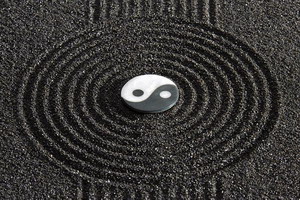 But I digress, back to duality. I have long felt that what the ancient Chinese were writing about in discourses on Yin and Yang was the continual battle between the right and left hemispheres of the brain. Yin is associated with chaos, darkness, disorder, creativity, receptivity, and a swirling flow of feelings while Yang is associated with order, rules, bright light, direction, focus, action, and logic. These same qualities are very much like the qualities of the right brain versus the left brain. In the Chinese culture of those times, women were best able to express and live with their right brain in charge while men functioned best with their left brain in charge. The same cultural values predominated in Victorian England and thus strongly influenced the development of our early American values. These accepted roles and values for men and women no longer apply to the culture that has been developing in America over the last 60 years.
But I digress, back to duality. I have long felt that what the ancient Chinese were writing about in discourses on Yin and Yang was the continual battle between the right and left hemispheres of the brain. Yin is associated with chaos, darkness, disorder, creativity, receptivity, and a swirling flow of feelings while Yang is associated with order, rules, bright light, direction, focus, action, and logic. These same qualities are very much like the qualities of the right brain versus the left brain. In the Chinese culture of those times, women were best able to express and live with their right brain in charge while men functioned best with their left brain in charge. The same cultural values predominated in Victorian England and thus strongly influenced the development of our early American values. These accepted roles and values for men and women no longer apply to the culture that has been developing in America over the last 60 years.
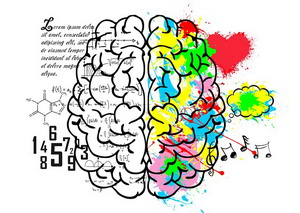 The key point here is that almost everyone has both a left and a right hemisphere to their brain. We all possess all the qualities of both the Yin and the Yang within us. Which skills we choose to develop from which brain region is unique to each of us. We are dualistic creatures trying to decide where we are comfortable standing on the surfboard on the waveform of life. There are no right answers and no wrong answers, only successful adaptations and unsuccessful adaptations. Since there are no right answers, there is no right ideal way to be for everybody. Idealism is great as a personal guide for your personal actions in order to get you out there to experience the natural consequences of your actions. That is how skill/wisdom is built. But everyone needs to have their own personal motivations, goals, hopes, and dreams. It is no one’s job to manifest your dreams. That is your job and your job alone. When you embrace this then your job also becomes your joy.
The key point here is that almost everyone has both a left and a right hemisphere to their brain. We all possess all the qualities of both the Yin and the Yang within us. Which skills we choose to develop from which brain region is unique to each of us. We are dualistic creatures trying to decide where we are comfortable standing on the surfboard on the waveform of life. There are no right answers and no wrong answers, only successful adaptations and unsuccessful adaptations. Since there are no right answers, there is no right ideal way to be for everybody. Idealism is great as a personal guide for your personal actions in order to get you out there to experience the natural consequences of your actions. That is how skill/wisdom is built. But everyone needs to have their own personal motivations, goals, hopes, and dreams. It is no one’s job to manifest your dreams. That is your job and your job alone. When you embrace this then your job also becomes your joy.
Take care,
David
